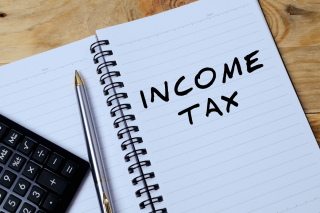 Many things change when you retire, including tax strategies. Steps that you took when you were working, may now work against you. Knowing what has changed and what you need to do can help avoid unnecessary tax liabilities.
Many things change when you retire, including tax strategies. Steps that you took when you were working, may now work against you. Knowing what has changed and what you need to do can help avoid unnecessary tax liabilities.
Tax planning is different after retirement. You might think that a lower income level and fewer deductions are the only changes, but it’s not that easy. You have to understand how retirement benefits and investment returns are impacted by federal and state laws, according to a recent article in Kiplinger, “3 Tax-Planning Mistakes Retirees Too Often Make.” Here are the three most commonly made mistakes:
Tax Loss Harvesting. Tax loss selling means selling a capital asset, like a stock, for a loss to offset a gain realized by the sale of other investments. The result is that the investor avoids paying capital gains on recently sold investments. Retirees with stock holdings should review their holdings every year to determine their market exposure and any tax consequences of selling stocks with substantial capital gains.
Unfortunately, the tax code isn’t very beneficial to stock losses. Stock losses can be used to offset gains. However, if you have excess losses over gains, you can only take an extra $3,000 annually to offset other income. If your loss is more than $3,000, you can carry it forward into future years. If your loss is big, you could be waiting some time to realize the full advantage of this.
Too Small RMDs. While many experts work on how to limit required minimum distributions (RMDs), there are some good reasons for taking larger distributions. With a lower income, retirees may discover they’re in a lower tax bracket, and they want to minimize their tax burden. However, they don’t see what can happen when they die: the money in their IRAs gets passed on to their beneficiaries as an inherited IRA. Alternatively, the recipients can elect to take a complete distribution of the IRA and get hit with income tax on the whole thing!
Taxes on Social Security. It’s not uncommon for people to think that Social Security isn’t taxable. Well, sorry to say, up to 85% can be subject to income tax. Retirees with minimal income won’t pay federal taxes on their benefits, but if they have additional income, there will be a percentage that’s taxable. They will need to calculate their “provisional income”:
- Adjusted gross income (excluding Social Security)
- Add any tax-free interest received (typically municipal bond interest)
- Add to that total 50% of your Social Security benefit
If the income is less than $25,000 for single filers or $32,000 for joint filers, your benefits are all tax-free.
If the provisional income is between $25,000 and $34,000 as a single filer or between $32,000 and $44,000 as a joint filer, you’re taxed on up to 50% of your Social Security benefits. But if your provisional income exceeds $34,000 as a single filer or $44,000 as a joint filer, you’ll be taxed on up to 85% of your benefits.
To protect your retirement income and savings, every year should begin with a review of taxable income to see how it will impact your Social Security benefits. That includes evaluating your tax bracket. Seniors face different scenarios than working folks, and you’ll want to avoid any unpleasant and costly surprises.
Reference: Kiplinger (December 13, 2017) “3 Tax-Planning Mistakes Retirees Too Often Make”
 Houston Estate Planning and Elder Law Attorney Blog
Houston Estate Planning and Elder Law Attorney Blog

